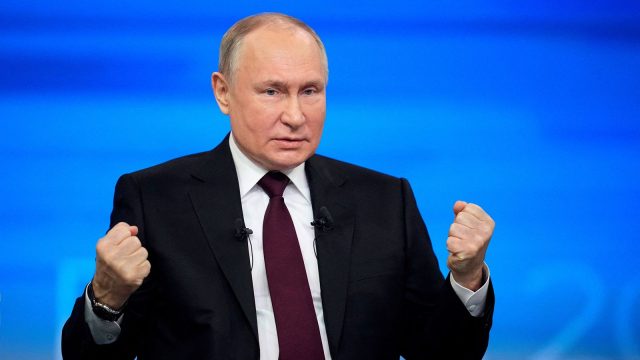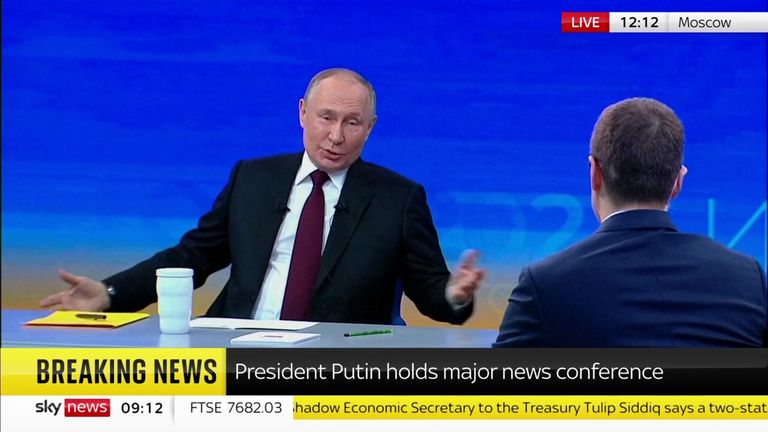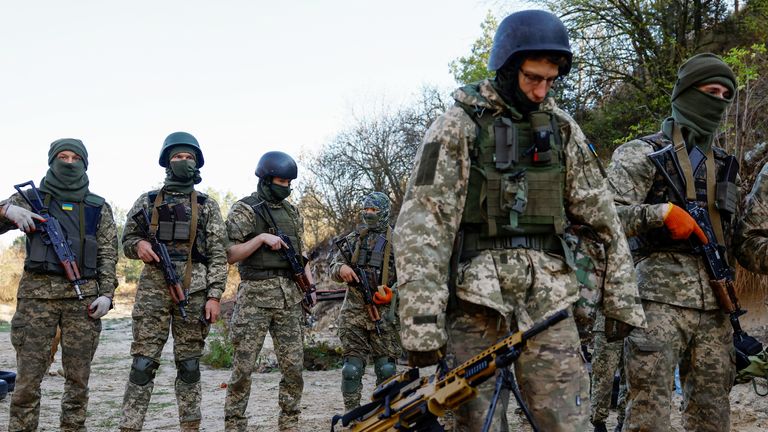The conflict in Ukraine is far from over but it’s little wonder Vladimir Putin is feeling emboldened.
Discussions on Ukraine’s route to accession into the European Union are top of the agenda for this week’s two-day EU summit.
But there are a number of key preconditions that Ukraine will have to satisfy before it can actually join the EU.
That said, there appears a broad consensus that a strategy for Ukraine’s accession should be agreed.
However, Hungary’s Prime Minister Victor Orban appears to be resisting any potential fast-track of Ukraine’s admission process, albeit this might simply be a political gambit linked to some EU funding for Hungary that has recently been frozen.
Ukraine war latest: Follow live
The EU is also looking to approve a €54bn (£46bn) financial aid budget to maintain the Ukrainian economy through 2024, and a separate military aid budget of €24bn (£20bn) to support Ukraine’s ongoing war with Russia.
The EU support is particularly needed after a difficult week for President Volodymyr Zelenskyy.
The next package of US military funding support for Ukraine – worth $61bn (£48bn) – has yet to be approved, and without ongoing Western financial and military support, Ukraine will struggle to maintain its war effort.
Meanwhile, Russia’s president has been hosting his first major international news conference since the start of the war with Ukraine.
President Putin used the platform to stress that Ukrainians and Russians are “one people”, and sought to frame the conflict as a civil war.
Mr Putin also claimed that Ukraine has “failed everywhere”, and a Russian soldier stated that “victory is close”.
Read more:
Are we ready for a world where Ukraine loses?
Wives of men mobilised to front call for end to ‘legal slavery’
Mr Putin’s appearance undoubtedly reflects a growing confidence that the tide of the war is changing to his benefit.
Despite huge Western military and financial support, Ukraine’s spring offensive has failed to live up to expectations.
It must be remembered that Russia’s military capability has been severely weakened by the conflict, so it is no longer the threat to Europe that it was pre-war.
Ukraine is not a member of NATO, so the West has choices to make about the level of future support it provides, and conflicting domestic priorities are clearly vexing Western political leaders.
And, following the disappointment of Ukraine’s spring offensive, inevitably Western leaders are asking whether this war is “winnable” for Ukraine.
A continuation of the fighting might result in greater Ukrainian casualties and therefore an increased risk that Russia might capitalise on Ukraine’s military fragility and look to expand its occupation.




















